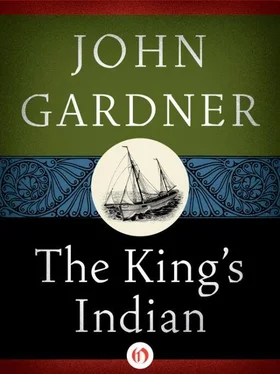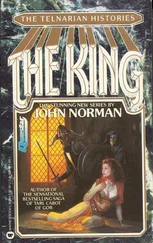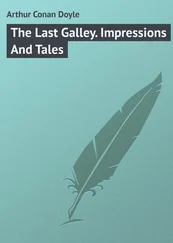Puzzling. But the storm, baying, tearing with ferocious jaws at Time and Space …
I’ve lost my thread. Let me see.
He spoke of Lamarck’s idea, in Zoological Philosophy, of the transfer, from male to female, of a complete but tiny man. The old idea was in part correct, he said, though in ways no one but he, John Hunter, had recognized. He spoke of the theory of inherent influences — the idea, now all but universally scorned, that a rifleman’s child might be born with the overdeveloped shoulder of his father. That too, though greatly oversimplified, was true. And he told of some monk who had recently gotten some curious information from beans — or perhaps from peas; I’ve forgotten. I understood, alas, hardly two words out of three. It was all very technical, and even though I am, in a sense, a scientific man, it was beyond me. I set it down as gibberish, in fact. Mere fancy without judgment.
Perhaps he guessed that. He fell silent, studying me intensely. Suddenly, out of the blue, he asked: “Does the Greek word klone have any meaning to you, Doctor?”
I searched through what little remained of my Greek. Then: “It means ‘crowd,’ if I remember rightly.”
“Exactly!” He smiled, then went still more pale. “Dr. Thorpe, I have discovered the secret of kloning animals — including human beings. I can turn one animal to an infinite number, every last one of them identical, a perfect duplicate.”
“Nonsense,” I said. I spoke sternly, to snap the man out of it; but one might as well have rebuked the storm.
“I’ve discovered a ray with strange properties — that is, I think it’s a ray. Perhaps a stream of particles, or motes. In any case—” He glanced nervously at the woman, then, with sudden determination, crossed to a desk at the far end of the room, opened it, and brought out a daguerreotype. He looked at it a moment, as if screwing up his courage, then hurried over to my chair with it. He practically hurled it at me, snapping his lean, stiff arm at me, the daguerreotype hanging in his violently shaking fingers. “Dr. Thorpe, do you recognize this man?”
It struck me that I did, though at first I couldn’t place the features. Then with a jolt I remembered the etching one comes across so often in old medical books. “Why, that’s Hunter!” I said, and was immediately flustered. My host, he claimed, was this same Professor Hunter. But the man in the picture was in his seventies. His beard was trim, his bespectacled eyes were …
Hardly knowing, I…
Hardly knowing what I was doing, I put the picture away in my pocket as though it belonged to me.
“Don’t you see?” he said loudly. His voice cracked.
“My dear fellow, I see nothing!” I shouted.
“That man is my father. Or, rather, that man is my identical self. And this woman—” He swung to point at her. “This woman is my mother, my wife, my sister. We’re not human, Dr. Thorpe. We’re copies! — klones!”
“Stark mad,” I whispered, and clasped my hands tightly.
“Miserable, but not mad,” he cried, dashing away from me, pacing in strides that would have been comic were they not so outrageously full of woe. “I can multiply my body and soul indefinitely— or any human being’s. I’ve lived twice already. I have fleeting memories of people dead a hundred years ago. Imagine, Doctor! There could be a thousand John Hunters!” He laughed wildly at the horror of the thought. The laughter arched out toward the storm like a lost soul’s screech.
I refused to be terrified. I did not believe him.
“You’re incredulous,” he said, “but I can prove every word of it, to the last syllable! I can show you my machines, my papers. Come!” He leaped at the woman and snatched her hand, dancing crazily past me. She threw me a wide-eyed imploring look, like a helpless animal in flight from dogs, but there was nothing I could do. I avoided his hand when he snatched at me.
I said firmly, forgetting all fear of him, “Hunter, you’re mad.”
“Yes, mad, God knows! But every word of my incredible tale is true. Mad as Faust — nay, mad as Lucifer! But I’ve told you no lies, if there’s any salvation in that, sir. Follow me!”
The storm was growing worse. He stood stamping by the door like a lunatic child, his white hand clamped around the woman’s. With every new gust, the whole house cracked and shuddered. I could swear there was flame in his eyes.
I said slowly, soberly: “Where are these machines and papers you mention?”
“In the tower,” he answered, and his crazy eyes were triumphant, as if I’d conceded.
“Impossible, then! Unthinkable! There’s no place in all this country less safe. Calm yourself! Show me where the storm cellar is, and I’ll inspect your materials tomorrow — if there’s anything left of them. I’ll look, I swear it. I give you the word of an official, licensed physician and veterinarian.”
But my sensible suggestion had no trace of effect. Some demon was in him, and nothing in ordinary humanity could any longer reach him.
“Dr. Thorpe, I beg you!” he wailed, and reached for my hand again. His whole body shook. Tears streamed down his cheeks. Even she — his mother, as he insisted on calling her — was wavering and surely in a moment would convert to his side.
Life, as I have said, is preposterous. Heaven knows what came over me. All my personal fear, all my lifelong good sense were overwhelmed by the pitiable spectacle before me: They seemed all at once neither human nor monstrous but merely outcasts of Nature, clinging to each other, hand in hand, and looking up to me imploringly for help. Before I could change or even know my mind, I took one step toward them, and in that step gave up and followed.
7
The door through which they led me — the woman went willingly, eagerly — opened on a circular wooden stairway with a rail worn smooth by many climbings in the night, a pitchdark room as airless as dreams of the grave. At what was perhaps the third turning, I saw light above, frail and unearthly — the lumination of the storm. It grew brighter, more ominous. I could feel the giddying sway of the tower. But at last we arrived, despite all that — came out into the world of Hunter’s ungodly laboratory.
It was not the machines I looked at first — great, square, black boxes over operating tables, glass-walled vats, cramped chemicals and tubing — though Hunter ran to them immediately. Most of the room’s south wall was a window, and the spectacle that window conveyed to us now is one I pray never to be witness to again. The churning sky was the unholy purple of glass balls on a lightning rod. The bloom of the lightning was virtually continual: it was like watching flames touched by cobalt and copper, but watching from deep within them. The torches Hunter had lit near his machines were a tragicomic mockery, a human shout against the fury of breakers on a rocky coast. And Hunter was, I saw, shouting to me now. I could hear, against the roar of the storm, not a whisper. Sparks and reflections of sparks danced weirdly in the room as he turned a great brass crank on the largest of the two machines. I glanced again at the window, then back at the machines and at the stacks of journals and loose papers in the glass-doored racks beyond. Suddenly, for no conceivable reason — unless imagination is the soul of judgment, and things in the world (black boxes, books) are the heart and soul of imagination — I believed him for an instant — believed he was, as he claimed, not human, and neither was she.
Then it came. All three of us heard the sound at once. My blood congealed. It was a noise like a thousand railroad engines, every one of them with its whistle blowing. It was the voice of the cyclone, or of God, as the woman fancied. I cannot swear that my eyes really saw what I think I saw when I turned to the window. I seemed to see not one cyclone but four, creatures more terrible than the Bible’s Four Horsemen, close at hand now and moving toward us as if sentient: four black giants that towered above us to the beams of Heaven, swaying like witchdoctors, watching us, moving with terrible purpose toward our tower. I stood wide-eyed, stunned. Now the woman — she who’d said so little before — was screaming like a beldame directly in my ear: “They’ve come! The Hounds of Heaven have found us! Forgive us, Thorpe!”
Читать дальше











![John Bruce - The Lettsomian Lectures on Diseases and Disorders of the Heart and Arteries in Middle and Advanced Life [1900-1901]](/books/749387/john-bruce-the-lettsomian-lectures-on-diseases-and-disorders-of-the-heart-and-arteries-in-middle-and-advanced-life-1900-1901-thumb.webp)
